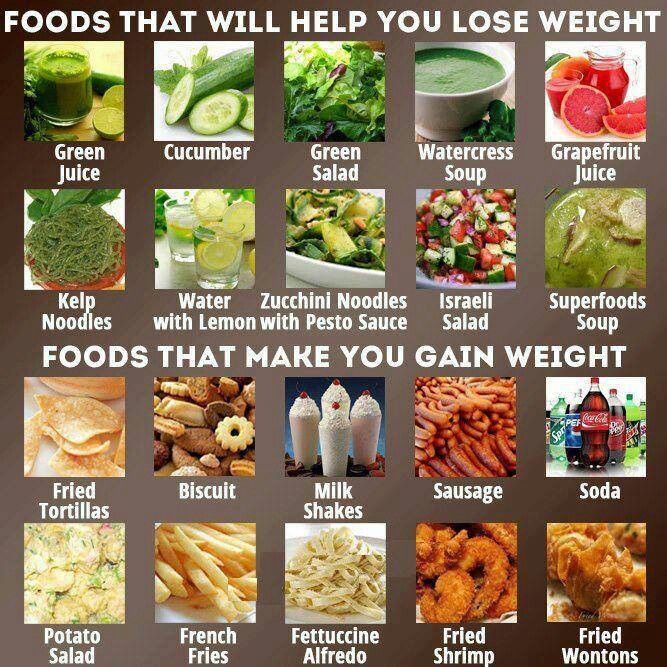Galvanized steel is technically a coated material, but it is worth mentioning here. Galvanized steel is a carbon steel that would most likely rust if it did not have one or more layers of zinc applied to it. The zinc layer acts as a sacrificial metal for the steel. This means that the zinc layer will combine with the oxygen more readily than the iron in the steel will. This creates a zinc oxide layer that prevents the formation of iron oxide, thus eliminating the possibility of rust forming. However, if the zinc coating is damaged, or if the galvanized steel is placed in extreme environments, the zinc coating may be rendered ineffective and the steel will rust.
Galvanized steel is also susceptible to "white rust" which is a type of corrosion that forms under specific conditions, typically involving water or condensation. The formation of white rust does not necessarily damage the material or the zinc coating. Technically rust is Hydrated Iron Oxide, also known as iron oxide (Fe²O³), as it is caused when iron reacts with oxygen and water - this reaction is known as oxidizing. Rust is very common, as iron reacts easily with oxygen.
I have decided to base my experiment on four different types of metals and four different liquids. I will be using a penny, nail, paper clip and a needle as my four metals. My four liquids will be vinegar, beach, lemon water and salt water.
To get started, the metal contents should be established. Today's pennies are mostly made of zinc with a thin layer of copper overcoating. The only difference between this process and that which happens to copper, zinc, or chromium, is that it will not happen under regular environmental conditions. Therefore, if the top layer on the item is harmed, the whole item will have to be refinished.
This is known as "bluing" when done with guns through one process, or "blackening" at most machine shops, through a similar process but slightly different chemicals. In cold blackening processes, iron oxide can be painted over the surface, providing slightly less durable protection. Set the degreased object outdoors or in a well-ventilated area on a piece of cardboard.
Work in an area where you can spray rusting solution without affecting nearby surfaces. Spray your metal object with plain white vinegar, soaking the surface and letting it dry before reapplying. The acidic vinegar lightly etches the metal surface so the piece will rust faster. It occurs when iron combines with the oxygen in the air causing it to corrode. Rust is the orange-brown discoloration that builds up on metal.
Rust can affect iron and its alloys, including steel. Whenever you have iron, water and oxygen together, you get rust. Although iron and steel structures seem solid to the eye, water molecules are able to penetrate microscopic gaps in the metal. If salt is present, for example in seawater, the corrosion will be more rapid. Exposure to sulfur dioxide and carbon dioxide will also hasten the corrosive process.
The chromium oxide layer is only a few molecules thick, and it is not instantaneously formed. When stainless steel is made, it is cleaned with an acid. This acid removes any surface level iron, salt, or grease deposits that could cause a problem for the chromium's chemical reaction.
Depending on the type of acid used it can either be part of the passivation process, or merely prepare the steel to passivate naturally in the air. This is accomplished through hot-dip galvanizing or electroplating. The iron or steel object is coated in a thin layer of zinc. This stops oxygen and water reaching the metal underneath but the zinc also acts as a sacrificial metal. Zinc is more reactive than iron, so it oxidizes in preference to the iron object. The zinc oxide layer prevents the formation of iron oxide, thus eliminating the possibility of rust forming.
Over time, the oxygen combines with the metal forming new compounds collectively called rust. The best-known of these reactions involve oxygen, hence the name "oxidation". The terms "rust" and "rusting" only mean oxidation of iron and its resulting products. Many other oxidation reactions exist which do not involve iron or produce rust. But only iron or alloys that contain iron can rust.
However, other metals can corrode in similar ways. When iron is in contact with water and oxygen, it rusts. If salt is present, for example in seawater or salt spray, the iron tends to rust more quickly, as a result of chemical reactions. Iron metal is relatively unaffected by pure water or by dry oxygen.
As with other metals, like aluminium, a tightly adhering oxide coating, a passivation layer, protects the bulk iron from further oxidation. The conversion of the passivating ferrous oxide layer to rust results from the combined action of two agents, usually oxygen and water. Given sufficient time, any iron mass, in the presence of water and oxygen, could eventually convert entirely to rust. Surface rust is commonly flaky and friable, and provides no passivational protection to the underlying iron, unlike the formation of patina on copper surfaces. Rusting is the common term for corrosion of elemental iron and its alloys such as steel.
Many other metals undergo similar corrosion, but the resulting oxides are not commonly called "rust". After a few days, the solution should be ready to use. The copper wire will still be there, but you should see that the acid has chewed into it a bit. Once the acid has got some copper in it, the greenish acid/copper mixture will deposit a bright layer of copper on a piece of clean steel that you dip into it. The coating is extremely unstable and will soon be replaced by rust.
You don't really want to use it like that anyway, as it will go a lot farther and be a lot less dangerous if you dilute it with water. You may have to play with the ratio, but somewhere between 20/1 to 100/1 of water to acid/copper solution should work well. If you apply it with a spray bottle, just realize that it won't be long for the world. The acid will eat the spring in the bottle, so it will quit working after a few days. The only thing I've found that really works longer is a little plastic hand-pump Hudson sprayer that has no metal in it. To tackle items with significant rust, submerge your rusty tools or knives in a bowl of vinegar and let them sit overnight.
Once they have had a good soak, remove them from the vinegar and scrub the rust off with steel wool or a wire brush. (This may require some elbow grease.) If there are some remaining rust spots, repeat the process and soak the object longer. Once all the rust has been removed, clean with dish soap and water and dry thoroughly. The corrosion of iron indicates a chemical change in the metal. Rust is an example of this change that results when iron is exposed to water or damp air.
A thin film of oxide forms on the iron; this actually protects the metal from further corrosion by slowing the rate of oxidation. Where salt is present, electrochemical corrosion occurs, and the protective oxide film does not form, thus the corrosion continues unchecked. Your iron nail will indeed rust more quickly and severely in salt water.
I don't think the vinegar will rust a eedle, paper clip, nail, or penny the fastest. There will be a minimal affect on The steel material. The carbonation of water, vinegar and oxygen on the air will form iron oxide on the nail, the scientific name for rust. Vinegar will remove any corrosion and clean the penny.
Bleach is a chloride, like vinegar, I think the affects will be minimal on Most of the metals. Since bleach contains oxygen, it would be most likely the liquids to rust the nail the fastest. The affect on the penny will be more like a cleaning agent, like vinegar and lemon uice, than as a corrosive. Rust forms due to a chemical reaction between water, oxygen and iron or steel. The water and oxygen bond with the metal, causing oxidation that results in rust.
Continued exposure to humidity or water vapor can be enough to cause rust. Other metals and stainless steel do not rust, but they can corrode. "Rust" is poorly defined in chemistry, however—lots of chemicals can be formed when iron is left exposed.
However, we generally refer to the red, flaky look that results from certain chemicals as rust. People may also use rust inhibitors to modify an otherwise corrosive metal. Consumers may use products such as Rust-Oleum's Rusty Metal Primer and Rust Reformer to inhibit corrosion on items with preexisting iron oxide. There are plenty of other rust inhibitors used to protect items in specific environments. Some popular rust-inhibiting additives include zinc phosphate and volatile amines .
MEtal can also under galvanization at the industrial level. Galvanization is the process of coating iron and steel with zinc . So you've prepped the metal object for rusting, but how does the oxidation process actually happen? First, you'll need to create a rusting solution by combining 16oz hydrogen peroxide, 2oz white vinegar, and ½ tablespoon of salt. If possible, mix this solution in the spray bottle with some of the leftover white vinegar.
Shake it up so that everything mixes well, and then start spraying down your object. If the rusting doesn't start happening immediately, you may need to put your object in direct sunlight for a while. It's understandable that most people want to prevent their cars and power tools from rusting, but some steel objects actually gain character from having a nice rusty patina. With a few household chemicals, it's easy to speed the oxidation process along.
Below, we've shared the basic steps to give your outdoor decorations a charming, weathered look. Stainless steel is another example of a metal that does not rust. Through it is important to note that some grades are more resistant to rust than others. Austenitic stainless steels such as 304 or 316 have high amounts of nickel and chromium. The chromium combines with the oxygen before the iron is able to which forms a chromium oxide layer. This layer is very corrosion resistant which prevents rust formation and protects the underlying metal.
On the other hand, ferritic or martensitic stainless steels may be susceptible to rust because they contain less chromium. Rust is the common name for a very common compound, iron oxide. Iron oxide, the chemical Fe2O3, is common because iron combines very readily with oxygen -- so readily, in fact, that pure iron is only rarely found in nature.
How do you make rust fast Iron rusting is an example of corrosion -- an electrochemical process involving an anode , an electrolyte and a cathode . When a piece of metal corrodes, the electrolyte helps provide oxygen to the anode. As oxygen combines with the metal, electrons are liberated. Corroding iron or steel produces many different compounds in regular environmental conditions. Some of these chemicals will be black, blue, yellow, gray, or brown, depending on what molecules they grab from the environment while rusting. What we usually mean is some type of iron oxide , one that is red or red-brown in appearance.
Degrease the stripped metal with a commercial degreaser to remove grime, dirt or remnants of finish that will prevent the chemical reaction that causes rust. Wear protective goggles and gloves every time you handle chemicals during the rust patina process. Do not handle a degreased piece of metal with your bare hands, to avoid any skin oil residue, which repels the rusting solution. When metal parts are properly stored with VCI Packaging products, VCIs activate and fill up the vapor space inside the packaging. The VCI ions form a shield of protection on the surface of metal that displaces moisture and eradicates rust. VCI Packaging safely prevents corrosion on protected metals without the need for messy grease, oils, protective coatings or other time-consuming methods.
You'll want to attack rust at first glance because it can corrode and pit metal the longer it stays on the surface. Luckily, some of the acids found in everyday household items, such as vinegar, lemon juice, and potatoes, can remove rust. Salt accelerates the rusting process by lowering the electrical resistance of water. Rust happens through a chemical process called oxidation in which metal atoms lose electrons, forming ions. The more easily the electrons flow from iron to oxygen, the quicker the metal rusts.
In those states that use road salt during the winter to melt snow, steel car bodies rust more rapidly than in dry desert states. Baking soda works well on items with light rust stains. It also works well on items made out of thin metal. Mix water and baking soda into a thick paste and spread the paste all over the metal, making sure that rusty spots are well covered. Let the paste sit on the object for an hour or so.
Use steel wool or a wire brush to scour the object and remove the rust. Rinse the paste off with water and dry thoroughly. While these metals don't rust, that does not mean that they do not corrode. They have their own forms of corrosion, such as pitting that can occur in stainless steel or the blue-green tarnish found on oxidized copper. When a drop of water hits an iron object, two things begin to happen almost immediately. First, the water, a good electrolyte, combines with carbon dioxide in the air to form a weak carbonic acid, an even better electrolyte.
As the acid is formed and the iron dissolved, some of the water will begin to break down into its component pieces -- hydrogen and oxygen. The free oxygen and dissolved iron bond into iron oxide, in the process freeing electrons. Galvanized metal (which is coated in rust-resistant zinc), stainless steel, and titanium are often used because of their ability to resist iron oxide. Other metals, including aluminum brass, bronze, copper, gold, and other metals, do not contain enough iron to rust. With that said, they may still develop some sort of patina. However, the patina will not infringe upon the structural integrity of the metal.
























No comments:
Post a Comment
Note: Only a member of this blog may post a comment.